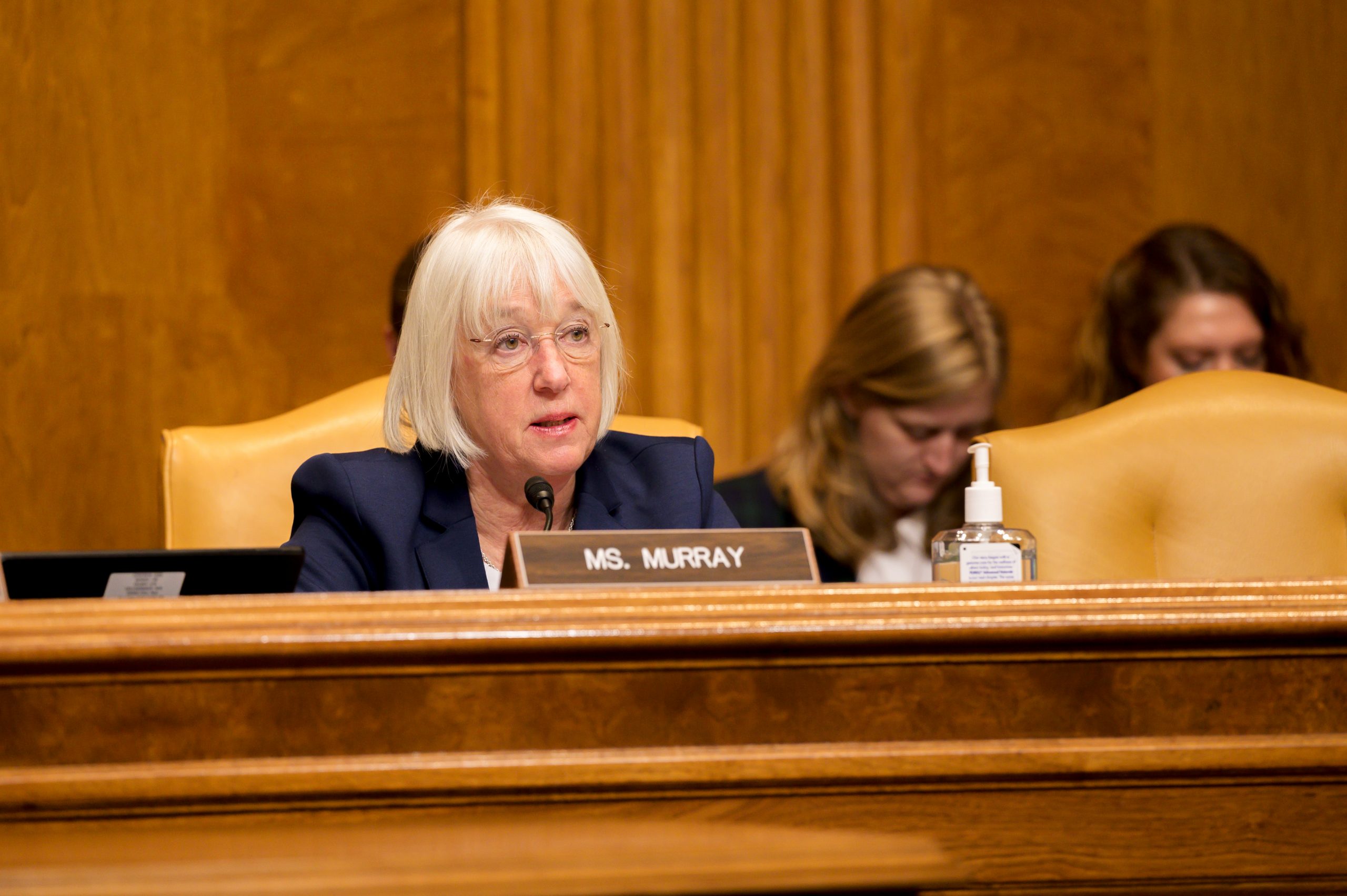ICYMI: Murray Statement on VA-Oracle Cerner EHR Contract Renegotiation
**WATCH: Senator Murray questions VA Secretary McDonough on EHR**
(Washington, D.C.) – Today, at a Senate Veterans’ Affairs Committee hearing on President Biden’s Fiscal Year 2024 budget request for the Department of Veterans Affairs (VA), Senator Patty Murray (D-WA), a senior member of the Veterans’ Affairs committee and Chair of the Senate Appropriations Committee’s VA Subcommittee, pressed Secretary of Veterans Affairs Denis McDonough on the VA’s recent Electronic Health Record contract renegotiation, asking the Secretary when Congress can expect an updated budget request, what targets VA plans to establish to assess user satisfaction, and what changes they will make to the EHR system based on provider feedback.
“Yesterday, VA announced that an agreement for a new EHR contract had been made with Oracle. It’s really important to see that VA is prioritizing reliability and responsiveness, and patient safety across the contract, so I appreciate that,” Senator Murray said. “Just last week, GAO released a report indicating that VA had not established target goals to assess user satisfaction—and that until it does, VA lacks a basis for determining when satisfaction has improved enough for the system to be deployed at any other sites.”
“I support the reset period as you know, and I support efforts to move forward, but only after—of course—you are confident about the safety and effectiveness of the system and have clear, established satisfaction markers—and what matters is what the providers and veterans on the ground think,” Murray continued. “Our veterans deserve the best health care we can offer, and it’s our job to make sure that VA and Oracle Cerner really get this right. When do you expect to have a revised request for the EHR account in Fiscal Year 2024, as well as an estimate of whether you need the funds requested to support the rollout in the IT and medical facility accounts?”
McDonough replied that VA does not anticipate needing the more than $400 million that Congress set aside for EHR this year and that he would follow up with a specific timeline for the revised request. He said that coming to the Appropriations Committee—which Murray chairs—with a revised request was the department’s “number one priority.”
“Do you have plans to establish targets to assess user satisfaction?,” Murray asked. McDonough confirmed that user satisfaction is a critical part of the evaluation but said he would get back to Murray regarding specific targets.
“Are there any changes that you have made, and plan to make, based on provider feedback at this point?,” Murray asked.
“A big part of it is the enhanced accountability measures around uptime and system reliability. That comes directly from the user experience,” McDonough said.
Senator Murray has been conducting oversight on the flawed EHR rollout in Washington state since the Trump Administration first negotiated the contract with Cerner (later acquired by Oracle), and at every point in the process since then. Murray has consistently pushed VA on its failed implementation of EHR—conducting oversight, holding the administration accountable, and calling on VA to halt deployment of EHR until they get it right in Washington state. In her role as Chair of the Appropriations Subcommittee on Military Construction, VA, and Related Agencies, Murray met recently with Oracle Cerner to discuss the issues VA providers face when using the EHR system and to get to the bottom of what can be done to fix the system.
In March of 2022, Senator Murray demanded a pause of the Cerner Electronic Health Record system rollout in Washington state, citing patient safety risks, and demanding the concerns laid out in reports from the VA Office of Inspector General – and previous reports over the last two years – be resolved before the EHR program is deployed at any other sites in Washington state. In October 2022, following Senator Murray’s push, VA announced it would delay the rollout of the Oracle Cerner EHR system at VA Puget Sound Health Care System until after June 2023. Since then — in April 2023 — VA announced that future deployments of EHR would be halted in order to prioritize improvements at the five sites that currently use EHR, including Mann-Grandstaff in Spokane and Jonathan M. Wainwright in Walla Walla.
In the omnibus appropriations bill that passed in December of 2022, Senator Murray secured critical language to ensure accountability and transparency from VA in its implementation of the Electronic Health Records Modernization. In March 2023, Murray helped introduce comprehensive legislation that would require VA to implement a series of EHR reforms to better serve veterans, medical personnel, and taxpayers. The bill would restructure, enhance, and strengthen the entire EHR program while also mandating aggressive reporting to Congress to increase oversight, accountability, and transparency.
###


